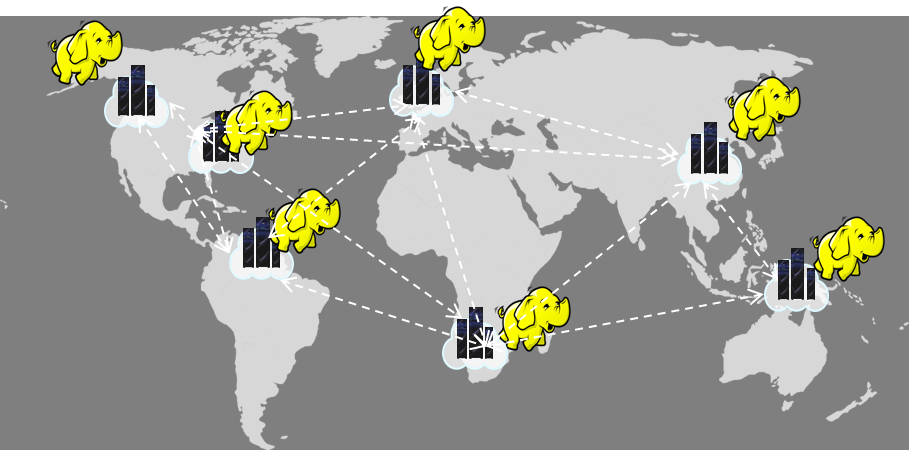Strata Hadoop world Singapore left me pumping my fists with proof that recipes like the Gartner Value escalator or our very own transformation roadmap provide a simple actionable plan to build hindsight, provide insights and move towards foresights that enable data driven transformations.
The example of transformation came from quite an unexpected keynote speaker Rishi Malhotra : CEO and co-founder of Saavn, in what he termed as data ripple effects.[youtube_sc url=”https://www.youtube.com/watch?v=eQeQ-RyKqPk”]
Rishi’s talk strengthened my belief that data large and small will be created everywhere and consumed for purposes not yet imagined. As a modern enterprise, businesses have to treat all data as raw materials for future business expansion if not industry disruption. You have to capture, protect and use it for its current purposes but also keep it available for future applications in its native pristine form.
The two popular options for capturing and protecting data in geo-distributed Hadoop architectures are:
- The public cloud and
- The Hadoop HDFS storage
The public cloud storage is global, built in the web and caters to the new generation of applications at an attractive cost to store. However the fine print costs for every touch, withdrawal, move – an egress fee, much like the banks or telephone companies of yesterday can quickly add up.
Traditional Hadoop DAS storage – a single protocol (HDFS), single site storage needs edge extensions for transformation and conversion to cater to modern applications. Businesses end up having multiple silos of data stores as they add applications and uses to their existing data.
There was quite an interest in protecting data with sessions on “Multi tenant Hadoop across geographically distributed data centers” and “Hadoop in the cloud: An architectural How-to” in addition to our very own EMC session on “Hadoop Everywhere: Geo-distributed storage for big data” that indicate a growing interest in addressing the challenges posed by modern mobile applications and the Internet of things.
Attendees, prospects and customers at Strata have been instrumental in validating the view that data is the asset of the future and needs to be captured, stored, protected and made available for future uses in a single shared global system. IT managers are looking to de-couple storage from the application stack with a disaggregated stack that is geo-distributed for protection as well as local access with a strong data consistency.
EMC Elastic Cloud Storage provides storage technologies that are simple, easy to manage, protect and scale into the exabyte range with built-in multi-protocol access for modern applications including S3, OpenStack Swift and HDFS.
Click here to learn more about the ECS solution for Hadoop or join our vibrant community on twitter.
